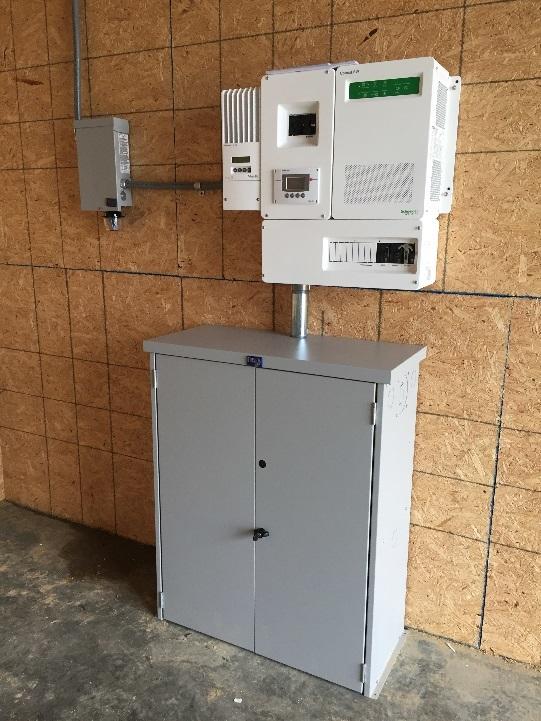

Off-Grid Solar Systems: A Guide
Are you thinking about going off-grid with Solar Power? Have you ever wondered what it takes to get to true energy independence? Well, an off-grid solar system may be just what you need. At Sun City Solar Energy, we’ve been installing off-grid solar systems for over 35 years in Arkansas, Oklahoma, Missouri, and the surrounding areas. From batteries and solar panels to installation and consulting, we can help you with everything that you need.
What Does Going Off-Grid With Solar Power Look Like?
An off-grid solar power system is completely disconnected from the traditional electric power grid. Without a connection to the utility grid, batteries are essential to balance periods of excess production and excess demand. An off-grid system can store energy for several days to supply your energy needs when the sun is not shining bright and the modules are not producing as much. These systems can be coupled with a natural gas or propane generator to protect against shortfalls of power when the solar system is under-producing and the batteries are discharged.
While every off-grid system is unique, they are typically made up of the following components:
- Solar Panels
- Inverter(s)
- Battery Bank
- Solar Charge Controller
Why Would Someone Want An Off-Grid Solar Energy System?
While there may be many reasons that someone would choose to install off-grid solar systems, the most common reasons are typically to get freedom from the electrical grid or that an off-grid system is the only feasible option to provide electricity to their location.
If you want freedom from the electricity grid, solar panels and a battery bank are one of the most certain ways to achieve it.
The second reason, it being the only feasible option, is the most common one that we encounter. Often times we talk to people who are going off-grid with solar power far from utility access and that the cost to connect is either too great or would come at the expense of certain aspects of the property that they don’t want to sacrifice, for example, the power company may want to cut a tree line that interferes with the view that the consumer is trying to keep.
If either of these reasons resonates with you, we’d be happy to set up a free consultation to evaluate your needs.
Am I A Good Candidate For Going Off-Grid?
With 95%+ of the solar energy systems installed today being grid-tied, we often get the question from customers, ‘Can I go off-grid?’
While there are several factors to consider, the most crucial is peak energy usage. We’ve created this handy guide to help you understand what to consider when going off-grid.
When evaluating your system, we’ll take a look at the following:
- Load Profile – Detailed list of the loads to be powered by the off-grid system. This is required to understand the daily energy demand the system will need to cover.
- Days of Autonomy – How many sun-less days does the system need to power the loads?
- System Main Voltage – A system voltage needs to be chosen. Typically 24V or 48V.
- Storage Battery Capacity (Ah) – After the daily energy need is calculated and system voltage is chosen, the number of ampere-hours can be obtained to select the right battery system.
- Solar Panels – After the size of the battery bank has been calculated, the number of solar panels needed is based on winter sun-hours for your specific location.
Are There Alternatives To Going Off-Grid?
Despite the appeal of living off the grid, it’s not for everyone. If you’re interested in net-metering or simply want to make sure that you don’t lose power during an emergency, one of our hybrid systems with a battery bank will probably be more suitable for your circumstances.
